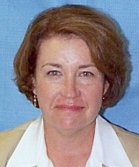The U.S. Securities and Exchange Commission “SEC” recently announced that Karol L.K. Pollock is now the new leader of the examination program in the Los Angeles Regional Office.
Read MoreJacko Law Group Blog
Private funds commonly use third parties, often known as finders, to raise capital from potential investors. When entering into arrangements with finders, private fund managers should carefully consider whether the finder is registered as a broker-dealer. Except in very limited circumstances, paying a commission to a finder that is not registered as a broker-dealer violates federal and state securities laws. SEC regulations do provide a safe harbor from the broker-dealer registration requirements for an agent of the issuer in certain limited circumstances. However, outside the safe harbor rule, the determination of whether a finder is subject to registration requirements is highly fact-specific.
Some activities generally lead to classification as a broker-dealer, and as such should be avoided by finders. Negotiating terms or providing recommendations of the financing transaction is generally considered to be a broker-dealer activity, along with handling funds involved in the transaction. Providing issuing companies with assistance in drafting or distributing sales and financial materials will generally prompt registration. Soliciting investors and previous involvement in the sale of securities is also a factor weighing in favor of the registration requirement.
Moreover, payment of fees to a finder which are contingent on the success of the financing transaction is likely to trigger registration. Percentage commissions and other compensation arrangements that vary depending on the amount invested create a substantial likelihood that a finder would be viewed as a broker-dealer, who is required to register with the SEC. The SEC has consistently treated transaction-based payment as a key factor in determining whether a finder is acting as a broker-dealer. This is because compensation directly tied to the success of the investments in securities heightens the incentive for the finder to engage in sales efforts. Therefore, the finder is acting in a salesman capacity, which is generally reserved for broker-dealers. The finder should receive a fixed fee regardless of the outcome of his or her efforts in order to avoid violations.
If the finder is found to be acting as an unregistered broker-dealer, he or she may be barred from enforcing and collecting finder’s fees. The SEC also can issue cease and desist orders, impose civil penalties, and seek criminal prosecution, including criminal fine sand imprisonment for egregious violations. Therefore it is imperative to conduct due diligence on the finder prior to engagement.
For more information on this and other related subjects, please contact us at info@jackolg.com or (619) 298-2880.
Photo Credit: http://coloradobusinesses.com/wp-content/uploads/2013/08/broker_dealer_cloud_400-351.jpg
Read MoreIn its newly released financial report for fiscal 2014, the SEC has stated that they will be evaluating recommendations from a staff report to consider a uniform fiduciary standard for investment advisors and broker-dealers as well as finding ways to harmonize rules for advisors and brokers in fiscal 2015.
Read MoreLegal Tip Archive
- September 2011 (5)
- April 2014 (5)
- August 2014 (5)
- September 2015 (5)
- August 2011 (4)
- October 2011 (4)
- June 2012 (4)
- July 2012 (4)
- August 2012 (4)
- October 2012 (4)
- November 2012 (4)
- January 2013 (4)
- March 2013 (4)
- April 2013 (4)
- May 2013 (4)
- June 2013 (4)
- September 2013 (4)
- October 2013 (4)
- January 2014 (4)
- February 2014 (4)
- March 2014 (4)
- May 2014 (4)
- June 2014 (4)
- July 2014 (4)
- December 2014 (4)
- January 2016 (4)
- November 2011 (3)
- December 2011 (3)
- January 2012 (3)
- February 2012 (3)
- April 2012 (3)
- May 2012 (3)
- September 2012 (3)
- December 2012 (3)
- July 2013 (3)
- August 2013 (3)
- November 2013 (3)
- December 2013 (3)
- January 2015 (3)
- February 2015 (3)
- March 2015 (3)
- July 2015 (3)
- August 2015 (3)
- November 2015 (3)
- February 2016 (3)
- March 2012 (2)
- February 2013 (2)
- October 2014 (2)
- November 2014 (2)
- April 2015 (2)
- May 2015 (2)
- June 2015 (2)
- October 2015 (2)
- December 2015 (2)
- July 2011 (1)
- September 2014 (1)












